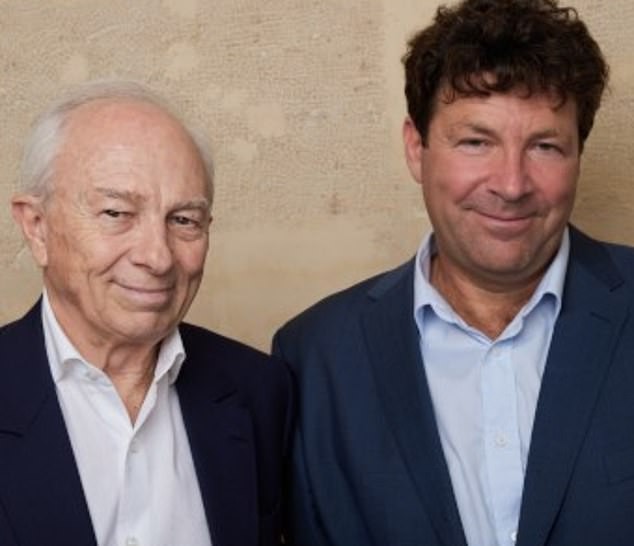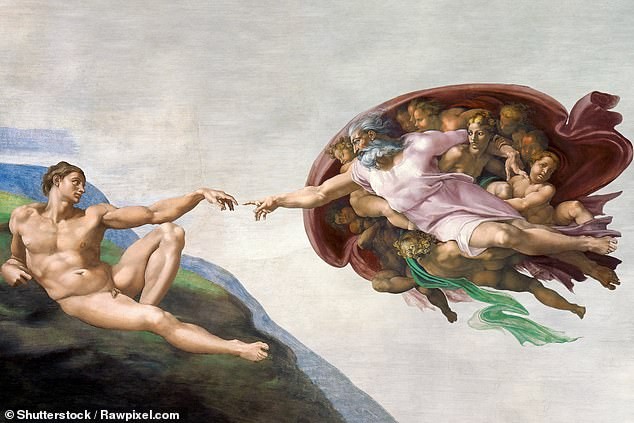God is real, and science proves it: a controversial new book claims reason now backs the divine
Two French mathematicians, Olivier Bonnassies and Michel-Yves Bolloré, launch a bold claim: God exists, and science proves it. Their 580-page book, God, the Science, the Evidence: The Dawn of a Revolution, is arriving in UK and US markets with a provocative message that challenges the notion that science necessarily erodes faith. The authors say they have sold around 400,000 copies since its 2021 release (with later reports listing roughly 440,000) and it has been translated into several languages. Both men are devout: Bolloré is a Catholic computer engineer from Paris, and Bonnassies says he found his Christian faith in his twenties. Bonnassies declares, 'Science is now God’s ally,' and argues that far from disproving God, 'the pendulum of science has swung back in the opposite direction.' In Publishers Weekly, the authors lay out the core argument: three scientific conclusions that, they say, align reason with the existence of a divine creator. They claim we live in space-time that binds matter, space, and time; that the universe has a beginning; and that the parameters of the cosmos are so finely tuned that life would be impossible with even a minor change.

In This Article:
The book’s core scientific conclusions
Centered on three propositions, Bonnassies and Bolloré argue that science already points toward a designer. 1) We exist in space-time, inextricably linking matter, space, and time; 2) The universe appears to have had a beginning; 3) The constants of the universe are finely tuned for life, such that even tiny changes would render life impossible. Together, the authors say, these facts create a framework in which belief in a Creator is coherent, not conspiracy. They frame their book as a revolution in how science and faith relate to one another.

Science and faith as allies, not enemies
To bolster their case, the authors say they have persuaded other scientists that science and religion can intertwine. Physicist Robert Wilson wrote the foreword, noting: "Although the general thesis… that a higher mind could be at the origin of the universe does not provide a satisfying explanation for me, I can accept its coherence. If the universe had a beginning, then we cannot avoid the question of creation." The book sits within a broader Big Bang discussion. Some Christians see the Big Bang as compatible with God, while critics like the late Stephen Hawking argued otherwise. Hawking wrote in The Grand Design that "It is not necessary to invoke God to light the blue touchpaper and set the universe going," adding: "Spontaneous creation is the reason there is something rather than nothing." The article also notes a symbolic image: Michelangelo’s Creation of Adam at the Sistine Chapel—a visual anchor reminding readers of humanity born through a higher power.

A scientific debate that keeps moving
The Big Bang is widely dated to about 14 billion years ago. In 1920, Edwin Hubble observed that galaxies are moving away, implying expansion from a past state. While some Christians see the Big Bang as evidence of creation, others argue the universe can arise from physical law alone. Proponents of the book point to Hawking’s claim that God is not required to explain the cosmos: the universe can create itself from nothing. Still, the authors press their case: science, they say, is increasingly consistent with the idea of a Creator. Abrams’ Joseph Montagne, distributing the book for the UK and US release, expresses cautious optimism: the work’s fresh perspective may resonate with many readers in coming years.

Gen Z, faith, and the cultural moment
A contemporary social snapshot frames the timing. A OnePoll survey found that teenagers and people in their early twenties are half as likely as their parents to identify as atheists. Among those aged 18–24, 13 percent identify as atheists, while 62 percent describe themselves as 'very' or 'fairly' spiritual. Generational change and a reluctance to grapple with abuse scandals are cited as factors in declining Christianity rates in the UK. Publishers Weekly notes the book’s release in the UK and US and Abrams’ optimism that the title will find an audience. The moment feels charged: science edging toward a creator, youth culture seeking grounding, and a renewed curiosity about what—if anything—binds the universe together. Do you believe in God?


